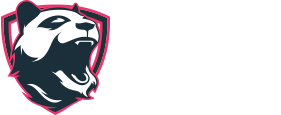form-Z Pro是一款由AutoDesSys公司推出的一款功能强大的3D设计应用程序,拥有丰富的实体和曲面建模工具,包括布尔,NURBS和细分曲面,能够支持导入SKP,KMZ,DWG,DXF,DAE,OBJ,SAT,STEP和STL文件,导出DWG,DXF,SAT,STEP,DAE和STL以进行3D打印,可以为建筑师、景观建筑师、城市规划师、工程师、动画和插画师、工业和室内设计师提供优秀的建模体验。

编号:form-Z.Pro.9.0.4.zip
系统要求
WIN系列系统:win7/win8/win10 (仅支持64位)
- Available for Windows 7/8/10.
- Solid and Surface Modeling tools including Booleans, NURBS and Subdivision Surfaces.
- Native support for 64 architecture on OS X allows for more content craetion.
- Imports SKP, KMZ, DWG, DXF, DAE, OBJ, SAT, STEP and STL files.
- Exports DWG, DXF, SAT, STEP, DAE, and STL for 3D printing.
软件破解办法
1、下载解压,得到formZ Pro 9原程序和crack破解文件夹;
2、首先双击文件“Install_formZ_9_Pro_64.exe”安装原程序,建议按默认目录安装;
3、软件成功安装后,打开crack破解文件夹,复制formZ Imager.exe、formZ.exe到软件安装目录下替换原文件;
默认路径【C:Program FilesformZ 9formZ 9.0 Pro】
4、至此,软件成功激活,以上就是formZ Pro 9破解版的详细安装教程,希望对用户有帮助。
软件特色
Form-Z Pro是目前市面上非常优秀的一款3d建模软件,该软件拥有丰富的实体和曲面建模工具,包括布尔,NURBS和细分曲面,能够支持导入SKP,KMZ,DWG,DXF,DAE,OBJ,SAT,STEP和STL文件,导出DWG,DXF,SAT,STEP,DAE和STL以进行3D打印,可以为建筑师、景观建筑师、城市规划师、工程师、动画和插画师、工业和室内设计师提供优秀的建模体验。新版本的Form-Z Pro 8引入了一套新的创意设计工具来增强表单生成,其中包括细分曲面和变形,可以制作更加有趣的表单。同时新版本允许交互式视图导航,并且可以选择将隐藏/后边缘显示为虚线。另外改进了布局文件和复杂3D模型文件的显示性能,改进的数字输入,新的高品质平滑输出选项,支持改进的平滑建模等等,将为设计人员提供更加高效的建模操作

form-Z Pro主要的功能就是帮助用户设计模型,你可以通过软件设计动画模型,可以设计CAD模型,可以设计建筑模型,拥有专业的曲面编辑功能以及实体功能,让用户在绘制模型的时候可以直接修改实体,支持的模型格式也是非常多的,可以将制作完毕的模型导出到dwg格式,引入了一套新的创意设计工具来增强表单生成,其中包括细分曲面和变形,可以制作更加有趣的表单。同时新版本允许交互式视图导航,并且可以选择将隐藏/后边缘显示为虚线。另外改进了布局文件和复杂3D模型文件的显示性能,改进的数字输入,新的高品质平滑输出选项,支持改进的平滑建模等等,将为设计人员提供更加高效的建模操作。
其他
orm•Z pro is a powerful 3D design application featuring a variety of modeling personalities and tools with an easy to use interface to express and communicate your imagination. It is based on advanced 3D solid and surface modeling methods that maintain accurate representations as you progress from design to visualization, layout, animation and fabrication.

form•Z pro includes all of the features found in form•Z Jr plus many advanced modeling tools, STEP and IGES translators, animation, layout, network rendering and interface customization. form•Z pro 8 is the latest version that introduces subdivision modeling as yet another modeling personality that enables the quick design and exploration of organic forms that originate from basic shapes. These forms are easily manipulated using a suite of subdivision tools that empower this new personality.
Feature: • Accurate robust internal representation of data including 3D solids, surfaces, trimmed surfaces, NURBS and parametric representations. • ACIS modeling engine provides advanced smooth modeling capabilities and reliable internal data representation. • Interactive drawing tools that allow for the direct creation of any shape including lines, splines, NURBS curves, arcs, circles ellipses, and polygons • Interactive 3D primitive creation (Cone, Cylinder, Sphere, Torus). • Advanced 3D primitives. Interactively create Paraboloid, Hyperboloids and Hyperbolic Paraboloids. • Sculpting tools use realtime Booleans to interactively Reshape (push/pull), Offset Segment, Offset Outline, Imprint • Deformations alter the shape of an object with the Bend, Bulge, Taper or Twist methods while keeping them a solid accurate object. • Advanced Deformations include Bend Along Path and 3D Morph operations. • The Billboard tool enables the quick placement of an image as a texture in 3d. • Basic Rounding allows for the rounding or beveling an edge of an object. • Advanced Rounding and Blending give much more control over rounding operations and offers blending between faces of objects (fillets). • The Cap tool constructs surfaces across opening in a model. The Cover and Uncover tools convert a wire object to a surface or vise versa. • Lofting tools include ruled, guided, path and branched lofting. • The Derivative tools allow for the construction of an extrusion, convergence or a wall object from (all or a part of) an existing object. • Advanced Derivative tools include point clouds, derivative from parts of objects. The frame tool derives a structure such as a truss or space frame from the edges of an object. • Unfold enables a model to be unfolded (flattened) with tabs and labels for fabrication and easy assembly. The projection tool flattens an object onto a plane. • Revolve is used to derive a revolved or lathed object from a profile (source shape) and an axis. • Helix and Sweep are powerful modeling operations that derive a new shape from the volume that a source object creates as it follows a path. • Advanced Sweep tools (Two Source Sweep, Two Path Sweep, Boundary Sweep, Draft Sweep) offer more flexibility and power the sweep capabilities. • Offset Surface makes a new surface parallel to the original surface. Thicken (shelling) converts a surface into a solid of a desired thickness. • Skinning is a powerful method to create surface or solid objects from a set of source shapes and a set of paths. There are tools for Smooth Skin, Meshed Skin, and Cross Skin. • Booleans allow for the creation of new forms through the Union, Intersection, or Difference of 3D solid objects.The Split, Slice, Line of intersection offer similar capabilities for surfaces. • Stitching enables the joining of surfaces and the creation of solids for a closed set of surfaces. • The Section tools allow for the creation of 2D and 3D sections of models. • Advanced Meshing tools give real control over facets of a model. These include the 3D Mesh, Polygion Mesh, Reduce Mesh and Polygonize tools. • Displacement creates a 3D object by added relief to a meshed surface based on an image creating the effect of the image being pushed through the surface. • Architectural specialty tools include: Stairs, Spiral Stairs, Roofs and Terrain Models. • Architectural specialty tools include: Switchback Stairs. • Engineering specialty tool include; Gears, Screws and Bolts. • Advanced creative design tools to enhance form generation. These tools include Point Scatter, Surface Scatter, Volume Scatter, Voronoi Diagram, Delaunay Triangulation, Wrap Objects and Parametric Map. • Components make it easy to place commonly used items in a model from a library of objects. A set of libraries is provided and users can create and share their own library of objects that they create. Tools are included for placing, creating, exploding, replacing and creating components. • Doors and Windows are special components that make an opening in a wall when placed in the model. • Basic line editing tools: Close, Trim, Join, Fillet. • Advanced line editing tools: Extend, Connect, Remove Point, Insert Segment, Tangent Line, Perpendicular Line. • Measure tools for distances and angles within and between parts of the model. Calculations of surface area and volume of objects. • Mass Properties calculations include weight, principal axis and moments of inertia. • NURBS Loft and Reconstruct. • NURBS curve tools: Curve Create, Reconstruct, Blend, Merge, Extend. • Advanced NURBS curve tools : Curve Convert, Attach, Split, Insert Knot, Edit Curve, Blend Curve to Point, Convert to Arcs NURBS by Formula. • NURBS surface tools: Surface Lofting, Boundary, UV Curves Convert, Nurbs by Cross Sections, Reconstrcut, Curve Extract, Blend, Merge, Extend. • Advanced NURBS surface tools: NURBS by Formula, Split, Edit Surface, Insert Knot. • Surface analysis allows you to inspect smooth surfaces in order to detect any imperfections or discontinuities in the surface. The following analysis types are offered: Zebra Stripes, Environment Map, Draft Angle, Curvature Map Normal Map, Porcupine Plot • 3D Text Creation, Editing and Search and Replace. • Advanced 3D Text tools: Text Along Path, Parallel Text, and Text Between Two Paths. • Dimensions (Linear, Angular, Radial Leader Line and Notes.) • The transformation suite of tools includes Move, Rotate, Uniform Scale, Independent Scale, and Mirror. These can be applied to objects, ligts, cameras and guides as well as object parts. • The Extend tool allows you to expand an object to an adjacent object. • Advanced transformations such as transformation macros that allow for a set of transformations to be defined and then re-applied to any object in the project. • The Align/Distribute tool aligns them or distributes a set of objects based on a variety of optional criteria. • The Place Along Path and Place On tools create copies of objects along a path or on the faces of an existing object. • The Object Doctor tool analyzes objects for problems such as duplicate points and other hard to find problems commonly found in some models created in other applications. • The Project Doctor analyzes the objects in a project and identifies potential problems such as duplicate objects. • 3D Print Prep tool identifies and fixes problems in a model that would prevent the model from being sent to a 3D printer. • Hatch attributes for objects. A hatch is a graphic technique used to create effects on surfaces for illustration purposes. • Line Weight and Line Style attributes for all objects. • Subdivision Surface Modeling. ( Basic editing, Conversion to NURBS) • Subdivision Surface Modeling. ( Advanced editing and Conversion to NURBS) • Sketchfab support • Augment support • 3D Connection Support • Copy Attributes


